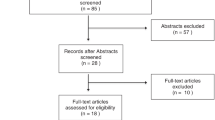Abstract
Continuing education in hematology is a key for stimulating the development around the world and improving patient outcomes. However, access to training and education is not equally distributed worldwide, and disparities in hematology exist for under-represented groups such as trainees living in low- and middle-income countries (LMICs). To identify and review the different educational and career development opportunities offered by hematology-focused international academic societies directed at healthcare professionals in this field. We conducted an online search to screen the official websites of international hematology societies and extracted data regarding continuing education opportunities in hematology. Twenty hematology societies were identified with 850 continuing medical education opportunities extracted and reviewed. We recorded 55 grants and funding opportunities from 13 societies. More than half required a membership to apply, 9.1% were available globally, and 12.7% were designed for persons living in LMICs. The current state of continuing education in hematology offers numerous opportunities for healthcare trainees. However, disparities persist for LMICs.


Similar content being viewed by others
Data Availability
Data for this work is available upon request to the corresponding author.
References
Laureano M, Mithoowani S, Tseng EK, Zeller MP (2021) Improving medical education in hematology and transfusion medicine in Canada: standards and limitations. Adv Med Educ Pract 12:1153–1163. https://doi.org/10.2147/AMEP.S247159
Shelbak AA, Bain BJ (2017) Training future haematologists, a privilege or a burden? “A trainer’s view.” Br J Haematol 178(4):501–507. https://doi.org/10.1111/bjh.14697
Todd RF 3rd (2001) A guide to planning careers in hematology and oncology. Hematology Am Soc Hematol Educ Program. 499–506. https://doi.org/10.1182/asheducation-2001.1.499
Sung L, Rego E, Riva E, Elwood J, Basso J, Clayton CP, Mikhael J (2017) Development and evaluation of a hematology-oriented clinical research training program in Latin America. J Cancer Educ 32(4):845–849. https://doi.org/10.1007/s13187-016-1015-4
Al Hadidi S, Abu Zaid MI, Mustafa AM (2023) Institutional disparities in the distribution of the American Society of Clinical Oncology grants. J Cancer Policy 35:100404. https://doi.org/10.1016/j.jcpo.2023.100404
Patel SR, St Pierre F, Velazquez AI, Ananth S, Durani U, Anampa-Guzmán A, Castillo K, Dhawan N, Oxentenko AS, Duma N (2021) The Matilda effect: underrecognition of women in hematology and oncology awards. Oncologist 26(9):779–786. https://doi.org/10.1002/onco.13871
MacLean E, Bigio J, Singh U, Klinton JS, Pai M (2021) Global tuberculosis awards must do better with equity, diversity, and inclusion. Lancet 397(10270):192–193. https://doi.org/10.1016/S0140-6736(20)32627-1
Eldridge L, Garton EM, Duncan K, Gopal S (2024) Authorship of publications supported by NCI-funded grants involving low- and middle-income countries. JAMA Netw Open 7(3):e243215. https://doi.org/10.1001/jamanetworkopen.2024.3215
About the Center for Global Health (updated 2021) National Cancer Institute. https://www.cancer.gov/about-nci/organization/cgh/about. Accessed 01 April 2024
Research Career Development Awards (updated 2017) National Institutes of Health. https://researchtraining.nih.gov. Accessed 01 April 2024
Shenbagaraj S, Iyer S (2024) An intelligent system for automated translation of videos from English to native language applying artificial intelligence techniques for adaptive elearning. Int J Intell Syst Appl Eng 12(3s):620–640
Zumberg MS, Broudy VC, Bengtson EM, Gitlin SD (2015) Preclinical medical student hematology/oncology education environment. J Cancer Educ 30(4):711–718. https://doi.org/10.1007/s13187-014-0778-8
Horiuchi S, Yaju Y, Koyo M, Sakyo Y, Nakayama K (2009) Evaluation of a web-based graduate continuing nursing education program in Japan: a randomized controlled trial. Nurse Educ Today 29(2):140–149. https://doi.org/10.1016/j.nedt.2008.08.009
Karim S, Sunderji Z, Jalink M, Mohamed S, Mallick I, Msadabwe-Chikuni SC, Delgarno NJ, Hammad N, Berry S (2021) Oncology training and education initiatives in low and middle income countries: a scoping review. ecancermedicalscience 15:1296. https://doi.org/10.3332/ecancer.2021.1296
Kareff SA, Sridhar A, Dhawan N, Anampa-Guzmán A, Singhi EK, Velazquez AI (2023) The democratization of hematology-oncology medical education during the COVID-19 pandemic. Cancer Invest 41(6):548–558. https://doi.org/10.1080/07357907.2023.2230495
Barteit S et al (2020) Evaluation of e-learning for medical education in low-and middle-income countries a systematic review. Comput Educ 145:103726
Soulier J, Bodine DM (2018) Translational research training in hematology. Hematologist 15(3). https://doi.org/10.1182/hem.v15.3.8528
Author information
Authors and Affiliations
Contributions
LGF, ERB, and AGL wrote the paper and analyzed the data. LGF, EBR, and AFD extracted the data. AGL designed the research. LS and DGA provided feedback and wrote the paper.
Corresponding author
Ethics declarations
Competing Interests
DGA received honoraria from Novartis, Janssen, Sanofi, Amgen, Roche, and MSD, and is an advisory board member of Amgen, Sanofi, Janssen, Pfizer, and Roche. AGL received honoraria from Novartis, Sanofi, Janssen, Amggen, Astellas, and MSD, and is an advisory board member of Janssen and Pfizer. The other authors declare no competing interests.
Additional information
Publisher's Note
Springer Nature remains neutral with regard to jurisdictional claims in published maps and institutional affiliations.
Rights and permissions
Springer Nature or its licensor (e.g. a society or other partner) holds exclusive rights to this article under a publishing agreement with the author(s) or other rightsholder(s); author self-archiving of the accepted manuscript version of this article is solely governed by the terms of such publishing agreement and applicable law.
About this article
Cite this article
Gil-Flores, L., Ramos-Barrera, E., Flores-Díaz, A. et al. Opportunities for Continuing Education by Hematology Societies Available to International Trainees. J Canc Educ (2024). https://doi.org/10.1007/s13187-024-02447-4
Accepted:
Published:
DOI: https://doi.org/10.1007/s13187-024-02447-4




